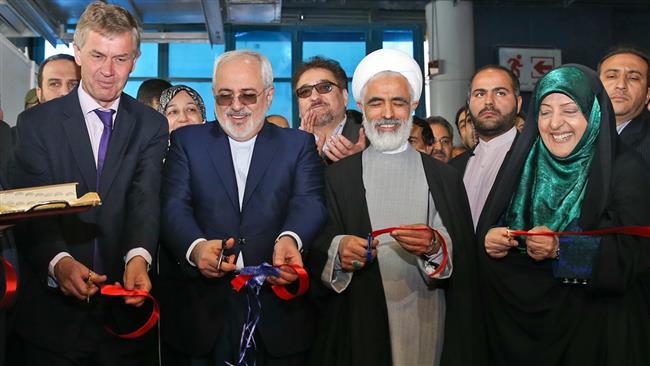Addressing the opening ceremony of the 16th Iran International Environment Exhibition in Tehran on Friday, Zarif invited all neighboring countries to engage in close environmental cooperation with Iran.
“I invite all neighbors of the Islamic Republic to launch a joint project to counter the environmental threats caused by former tyrant regimes in the region, particularly [Iraq’s executed dictator] Saddam [Hussein] and some extremist groups, especially Daesh,” the Iranian minister said.
Some of the areas in Iraq where sandstorms originate are under the control of the Daesh Takfiri terrorist group and have turned into battlefields, hindering a response to environmental issues in those territories. Analysts also believe that Saddam’s environmental policies during his tenure have played a major role in the drying up of Iraq’s wetlands and current environmental issues.
“The Islamic Republic of Iran extends its hand of cooperation to all its neighbors in order to provide a better life for our children through a joint project and to counter the threats that the present generation and future generations face,” he added.
He described such cooperation as a “political and security imperative and not just an environmental necessity” and expressed hope that the leaders of regional countries would succeed in solving the issues.
Environmental cooperation can help build confidence among regional countries, he said, adding that all states in the region regardless of their policies need to strengthen their cooperation in this sector.
Zarif further expressed hope that all countries would also boost their cooperation to solve common challenges in all other fields, including economy and poverty alleviation and the campaign against terrorism and extremism.
“Green Economy, Resilience Economy” was the motto of the four-day exhibition which was kicked off in Tehran in the presence of 300 domestic firms and 20 foreign companies.
The exhibition is underway in Tehran as the southwestern Iranian province of Khuzestan is reeling from heavy floods and dust storms, a situation which has led to disruption to the distribution of water and electricity supply in the province.
Speaking upon his arrival in the provincial capital city of Ahvaz on Thursday, Iranian President Hassan Rouhani said the Islamic Republic is currently implementing plans to resolve the root causes of dust storms inside the country, but there is a need for regional and international cooperation to eliminate the other origins of such storms in Iraq, Syria and Saudi Arabia.
Heavy rains have washed filaments of dust and sand into power transmission equipment, leading to long outages. Water supplies have not been unscathed, hindering everyday life in the provincial capital Ahvaz and other cities.
On Monday, Leader of the Islamic Revolution Ayatollah Seyyed Ali Khamenei called on Iranian officials to immediately address the problems facing residents of Khuzestan Province.
